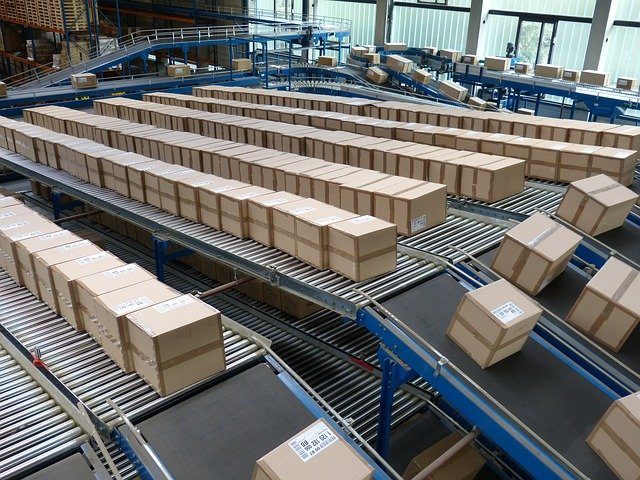In today’s fast-paced business landscape, efficiency is the key to success. To stay competitive, companies are constantly seeking ways to streamline their operations, reduce costs, and improve productivity. One of the most powerful tools in achieving these goals is automation. Automation solutions advice are revolutionizing industries across the board, from manufacturing and logistics to finance and healthcare. In this comprehensive guide, we will explore the world of automation solutions, how they work, and how they can unlock efficiency for your business.
Understanding Automation Solutions
Automation solutions are technologies that enable processes and tasks to be performed with minimal human intervention. These solutions can range from simple scripts and macros to sophisticated robotic systems and artificial intelligence algorithms. The primary goal of automation is to reduce manual effort, minimize errors, and increase the speed and accuracy of tasks.
The Benefits of Automation
- Increased Efficiency: Automation allows businesses to complete tasks faster and more accurately, leading to increased efficiency. Repetitive and time-consuming tasks can be automated, freeing up employees to focus on more strategic activities.
- Cost Reduction: By reducing the need for human intervention, automation can lead to significant cost savings. Businesses can lower labor costs, decrease the risk of errors, and reduce operational expenses.
- Improved Accuracy: Automation eliminates the potential for human error, leading to more accurate results. This is particularly crucial in industries where precision is paramount, such as manufacturing and healthcare.
- Enhanced Scalability: Automation solutions can be scaled up or down easily to accommodate changing workloads. This flexibility allows businesses to adapt to market fluctuations and growth without major disruptions.
- 24/7 Operations: Automation systems can run 24/7 without the need for breaks or rest, ensuring that critical tasks are always completed on time.
Types of Automation Solutions
- Robotic Process Automation (RPA): RPA uses software robots to mimic human interactions with computer systems. It is commonly used for data entry, data extraction, and rule-based tasks.
- Artificial Intelligence (AI): AI-powered automation leverages machine learning algorithms to perform tasks that require decision-making and data analysis. This includes chatbots, predictive analytics, and natural language processing.
- Industrial Automation: Industrial automation involves the use of machines and control systems to automate manufacturing processes. This can include robotics, CNC machines, and conveyor systems.
- Business Process Automation (BPA): BPA focuses on automating entire business processes, such as order processing, invoice generation, and customer onboarding.
- IoT (Internet of Things) Automation: IoT devices and sensors can be used to automate various tasks, from monitoring equipment performance to optimizing energy usage.
Implementing Automation Solutions
- Identify Areas for Automation: Start by identifying processes and tasks that can benefit from automation. Look for repetitive, rule-based, and time-consuming activities.
- Select the Right Automation Tools: Choose automation tools and technologies that align with your business needs. Consider factors such as scalability, compatibility, and ease of integration.
- Design Workflow: Create a clear workflow that outlines how automation will be implemented. Define triggers, actions, and decision points in the process.
- Testing and Optimization: Thoroughly test the automation solution to ensure it works as expected. Continuously monitor and optimize the system to improve its efficiency and accuracy.
- Employee Training: Provide training to employees who will be working with the automation solution. Ensure they understand how it works and how it benefits their work.
- Data Security: Implement robust security measures to protect sensitive data when using automation solutions. Data breaches can have severe consequences.
Case Studies: Real-World Success
- Amazon’s Fulfillment Centers: Amazon utilizes a vast network of robots to automate order picking and packing in its fulfillment centers. This automation has significantly increased order processing speed and accuracy.
- Healthcare Diagnostics: Automated diagnostic systems, powered by AI, can analyze medical images and detect anomalies with a high degree of accuracy, helping healthcare professionals make faster and more precise diagnoses.
- Banking and Finance: Many financial institutions use RPA to automate tasks like account reconciliation and transaction processing. This reduces errors and speeds up financial operations.
Challenges and Considerations
While automation solutions offer numerous benefits, they also come with challenges:
- Initial Investment: Implementing automation solutions may require a significant upfront investment in technology and training.
- Job Displacement: Automation can lead to job displacement in certain industries. It’s essential to consider workforce implications and plan accordingly.
- Integration Complexity: Integrating automation with existing systems and processes can be complex. Compatibility issues may arise.
- Data Privacy: Protecting customer and company data is paramount. Ensuring data privacy and compliance with regulations is crucial.
The Future of Automation
Automation is evolving rapidly, driven by advancements in AI, robotics, and the Internet of Things. The future promises even more sophisticated Automation solutions advice that can handle complex tasks and adapt to dynamic environments. Businesses that embrace automation will be better positioned to thrive in the digital age.
Conclusion
Automation solutions are powerful tools for unlocking efficiency in today’s business world. By automating repetitive tasks, reducing errors, and increasing productivity, businesses can gain a competitive edge. However, successful implementation requires careful planning, the right technology, and a focus on data security and workforce considerations. Embracing automation is not just about improving efficiency; it’s about future-proofing your business in an increasingly automated world.
